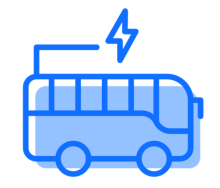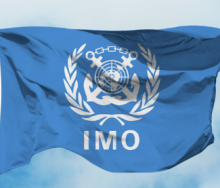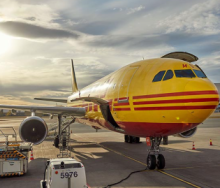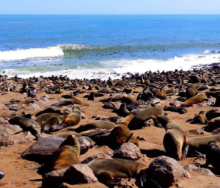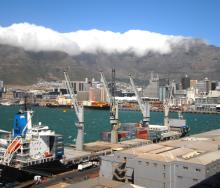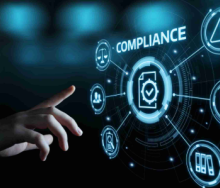On the eve of polls opening nationwide in South Africa for the May 29 elections, an investigation of various political party manifestos has revealed that crucial logistics and supply chain matters are either glossed over or entirely ignored.
This is despite serious security-related concerns that continue to cast a shadow over the country’s multi-model trade and transport competency.
Of all the parties whose manifestos were scrutinized, all but one, namely Action SA, neglects to go into any specifics on how diverse transport initiatives could be used to stimulate the country’s flagging economy.
The ANC sums up its approach to the sector in a sentence: “Fix the current energy, transport and logistics constraints”.
The DA is hardly more specific, although mentioning that it intends to improve state-owned entities (SOEs) “through a balanced approach to privatisation”.
It adds that it will seek to “harness public-private partnerships to strengthen crucial energy, communication, water, and transport infrastructure”.
Actual specifics, as in mentioning a certain SOE’s name, appear to be only important for smaller parties, some of whom are participating in elections for the first time.
Rise Mzansi, the movement started by a former editor of Business Day, Songezo Zibi, claims it will “ensure Eskom and Transnet have boards and management with the requisite experience and expertise in turning around large industrial companies in crisis”.
In respect of the logistics utility, some might say that the process is already under way under the executive stewardship of Michelle Phillips, Transnet’s Group CEO.
As with many of the other, more established parties, Rise Mzansi is also a little vague when it says that it will “support anchor industries to achieve higher growth rates, and support the rapid development of secondary and new industries”.
Equally scant on important detail is Build One SA (Bosa), the party that emerged after Mmusi Maimane left the DA.
Amid a range of broad, non-specific statements touching on the economy, Bosa hints at the transport sector, saying it will “ensure the infrastructure required to support business development and international trade is provided and of a high standard”.
As for the Freedom Front Plus, it’s the only party mentioning the fuel levy – a major cost concern for the supply chain sector – specifying that it will decrease this tax and dedicate revenue from it towards improving transport infrastructure.
Not one of the parties whose manifestoes were looked at – the IFP, Good, UDM, ACDP, Al-Jama-ah and the African Transformation Movement – has anything to say about the transport industry and its related sectors.
This brings one to Action SA, the party run by businessman Herman Mashaba.
Compared with the other parties, its manifesto goes into detail about long-standing economic development issues such as rail freight, the only party addressing this aspect of South Africa’s logistical challenges.
Among other things, Action SA undertakes to “invest in the extension of the Sishen-Saldanha and Limpopo-KwaZulu-Natal rail lines to increase exports and economic activity in the mining and industrial sectors”.
In addition, the party commits itself to “expand and improve seaports in Durban and Richards Bay to increase local and international trade”, and utilizing “South Africa’s partnership with the SADC and free trade measures established by the AfCFTA (African Continental Free Trade Area) to expand South Africa’s sea and rail corridors.
“This will improve trade with markets in East and West Africa.”
None of the other parties, if their manifestoes mean anything, goes into this level of detail, not only mentioning certain ports and logistical infrastructure linkages by name but including the necessity for relaxing regulatory complexity and expanding trade opportunities.
As for the EFF, supply chain and logistics are not mentioned in the party’s manifesto segment on economic policy formation.
The MK party, led by disgraced former President Jacob Zuma, who has been legally ruled out of returning to parliament because of a criminal conviction in 2021, had no manifesto to look at (**).
In July of that same year, logistical infrastructure and warehousing in KwaZulu Natal was looted, set fire to, and destroyed by supporters of Zuma when he was sent to prison for refusing a court order summoning him to appear before the Zondo Commission of Inquiry into Allegations of State Capture.
Before and since that event, logistics and supply chain concerns in South Africa regularly find themselves in uncertain territory because of nagging concerns such as port congestion, the ability to move imports and exports fast enough, internal stability, and labour-related arson attacks against the transport sector.
Yet, despite all these issues and the threat they pose to people and property from the logistics and supply chain sector, not a single party goes into detail about how it intends to protect services crucial for economic development.
Over the past weekend transport minister Sindisiwe Chikunga was supposed to attend the annual Road Freight Association (*) conference, a highlight on the country’s logistics calendar.
This no-show by a minister, and not for the first time either, doesn’t bode well to quell the fears industry leaders most likely have about post-election violence, especially in battle-ground provinces like KZN.
Had she honoured her commitment, it would have been an ideal opportunity to perhaps remind conference attendees that the ANC government was serious about the logistics sector.
Instead, we’re left with the vague non-specifics contained in its manifesto.
The fact that so few parties, except Action SA to a certain degree, goes into any actual detail about plans for supply chain progress, is a cause for concern.
* After this report was posted, RFA chief executive Gavin Kelly said: "It was a pity that the minister did not attend after confirming that she would.
"Whilst we understand that campaigning is important, those who attended the RFA Conference were the majority companies of road freight and logistics companies that keep South Africa going, adds billions of tax rands to the GDP and have carried the country during very hard times.
"Is it an electorate you would wish to alienate?
"In addition, there were vital topics discussed – including rail and the whole Transnet debacle.
"We really missed your valued input and attendance, Minister Chikunga."
** There was also no manifesto available for the Patriotic Alliance which, like Zuma's MK, is run by an individual with a criminal record.






